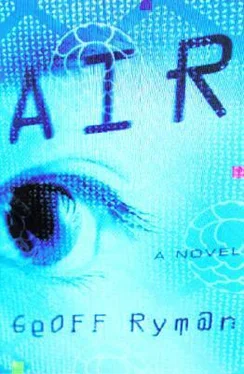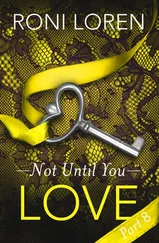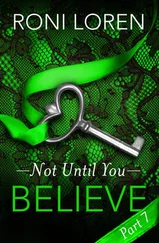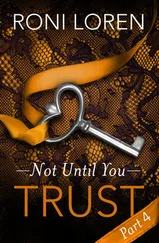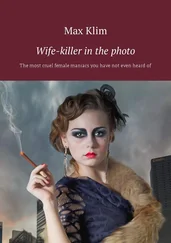Kwan smiled wryly. 'That was the effect she wanted.'
'She was a different Mae,' said Mr Ken.
Which Mae do you love? Kwan wondered.
Old Mrs Tung shifted with discomfort and frustration. 'Where is Mae?' she demanded. 'And, Kuei, why are we are we eating old goat? Can't you find anything better?'
Siao made a space near him for Mr Ken to moisten the bread. In the corner, Mae's TV still received voicemail. Kwan considered. It is probably Siao, who loves the Mae she became – Unrolling Mats and TV screens.
'I will have to get back soon to the girls,' Mr Ken warned Siao. His daughters lived with their cousins at the Teahouse. Siao nodded. The two men were a household.
And, Kwan considered, it is probably Siao who keeps it together.
As soon as the shreds of goat were cooked, they offered the food. Kwan leaned forward. 'Mae? Mae, eat something, please.'
'I am not hungry,' said Old Mrs Tung. 'Kuei! Take me home. We have been here long enough. It is evident that Mae and Joe will not be back.'
'For your baby. You must eat,' said Kwan.
'What… what… what…' Mrs Tung shook her head no – no, over and over. 'What are you talking about?' Old Mrs Tung demanded. 'I don't want your food, woman! I want to go home. Why can't we go home?'
'Sssh, Granny,' said Kuei, coming from the stove.
'We have been here for hours!' Old Mrs Tung started to weep from frustration.
'Sssh, Granny. The house is gone; it was washed away in a Flood.'
'What?' Old Mrs Tung looked up in horror and her eyes shivered with all the despair of fresh discovery.
Old Mrs Tung could only live in the past.
Mae lived, fascinated, in air.
Air was real life – all of life all at once, for it made all times one time. For Mae, time was a breakfast table, with everything in reach. She would stretch across eternity and feel herself expand, out of Air and into any moment of her life.
Mae would walk to school hand in hand with her brother Ju-mei. She threw acorns at him, and they ran, laughing, round and round the One Tree.
Joe took her on a date, down the hill to Kurulmushkoy. The Teahouse there catered to young people and had a radio.
Dazzled, at sixteen, Mae sits in a booth and listens to U2. It is only two years since the Communists have gone; there is all this new stuff. Joe seems to be king of it.
'U2 are from Ir Lang Do. They are not English, not American. They had a big event, all the big stars sang for poor people. It went round the world. Yah.' Joe looked into his tea. His hair is buzzed short, he wears a chrome necklace. Joe is the future. His eyes are sad. 'We missed it.'
Mae is entranced. She is moved. 'We will not miss it next time, Joe,' she says. She ventures forth, and puts her hand on top of his. This is simply because she finds she feels the same. 'Next time, we will be part of the future.'
'We can bet on that,' he says, and pushes his hand into his tight jeans and pulls out a quarter-riel. He slams it on the table.
'It is a wager!' Mae giggles, at sixteen, and covers her teeth with her hands because she thinks they are huge and make her look like a horse. But her eyes are fixed on Joe.
And then this time shrinks and folds down into itself. It is the room and the people and the smell of boiled water and cigarettes that collapses, not Mae herself. Mae is always there.
Mae can do frightening things. She balloons herself back into the womb before she was born. She can feel her mother's terror and misery seething around and inside her. She hears pumping and muffled voices. She sees gentle light. It is like dying, a gentle dying that is not fearful because you know that this is the beginning.
The unborn infant knows that too, connected in Air to its own future.
We live and we die in eternity. Our physical bodies occupy the balloon world. The balloon world has space, and we are trapped in one part of it. The balloon expands and we are trapped with that expansion. And that is time.
But, oh, in Air!
Air has no time.
Air is everything that has been and will be, waiting its turn to puff out of its tiny dot into our brief world.
And Mae's life is hinged with that of another.
It is the first day of autumn school and Mrs Kowoloia comes with her little daughter Kwan.
Mrs Tung thinks: My, but the child is solemn. And Mrs Kowoloia, oh, she is so beautiful, ethereal. She floats – and all that embroidery!
'Mrs Kowoloia, you are as beautiful as the butterfly!' hoots Mrs Tung, seizing her client's hands with gratitude, for this is the first arrival of the school year. The courtyard will soon be full of children.
Mrs Kowoloia says, 'Mrs Tung, may I say what a benefit this is to all of us. To run a school for us year in and year out. And we all know of your education.'
'Ah! But all my books were lost,' hoots Mrs Tung, holding up her hands and laughing for the dead.
The little girl looks seriously ready for work and disgruntled that there is none to do.
'Kwan, dear, I have some paper and paints.'
Kwan wrinkles her nose. 'It's all right,' says Kwan. 'I'll read my book.'
Every time the boys play football together in the white dust of my courtyard, I say, 'Ahmet would have played with them.' When all the little girls sing or skip rope, I close my eyes and imagine I hear Lily chanting with them. My Lily, who I let fall and drown.
Two little girls slip through the gate all by themselves. One is tall and skinny, and angry. The other is tiny, so small that her chin hits her chest as she scowls.
I know who this is, thinks Mrs Tung, and she walks forward, bending at the middle.
'Are you the little girls who lost their daddy?' Mrs Tung asks.
The oldest looks at her with frightening directness. 'He was shot by Communists.'
'And what is your name?' Mrs Tung half hopes it will be Lily.
'I like to be called Missy,' says the elder. 'So that's what everybody calls me.' She looks down at her sister with a mother's pride. 'This is my sister, Mae,' she says, in a way that makes Mrs Tung want to weep, it is so full of love and care.
The little one is shy. She holds up an autumn leaf. 'It's red,' she says. 'I found it on the ground.'
'Leaves fall. That's because autumn is coming. I'm Mrs Tung.'
'It's beautiful. It looks like a cushion. All red.'
'Where is your mother?' Mrs Tung asks.
'Nowhere,' Missy says coolly.
Missy coughs, and from deep within her lungs comes the authentic crackle of TB. She coughs again, and passes Mae to Mrs Tung. 'Mae's clever,' says Missy. She ushers Mae forward, arm around her shoulder. Her solemn eyes meet Mrs Tung's. Mrs Tung feels a prickle up her spine, as if Missy is passing Mae to her, to care for.
Missy coughs again, Mrs Tung is sure.
Mrs Tung could taste Air.
'Come, Mae. We have another clever little girl for you to meet. Her name is Kwan.' Mrs Tung moves them forward together. The older one is lean and already grey as a ghost.
Mrs Tung gazes at the round face of the little girl and to her it is like an egg that will hatch. She can half see who this Mae will be – oh, clever, yes, but not in any way that school can capture. She will turn herself into Missy, to honour her and love her and remember her.
The children run around her, swirling like dust, and Mrs Tung can see them all hatching, into Shen, into Joe, into Kan-hui. It is her job to warm them, love them into life.
Mrs Tung sits in her big kitchen, darning wet socks.
You darn them wet so that they will dry and heal shut. Her smelly, kindly old husband is in the fields. Her young man is off in the hills. Mrs Tung feels heavy and weighted, as if going up a fast escalator. She is pregnant, and she knows the child is not Mr Tung's. She becomes aware that she is hearing gunfire. Has the war moved back here?
Читать дальше
